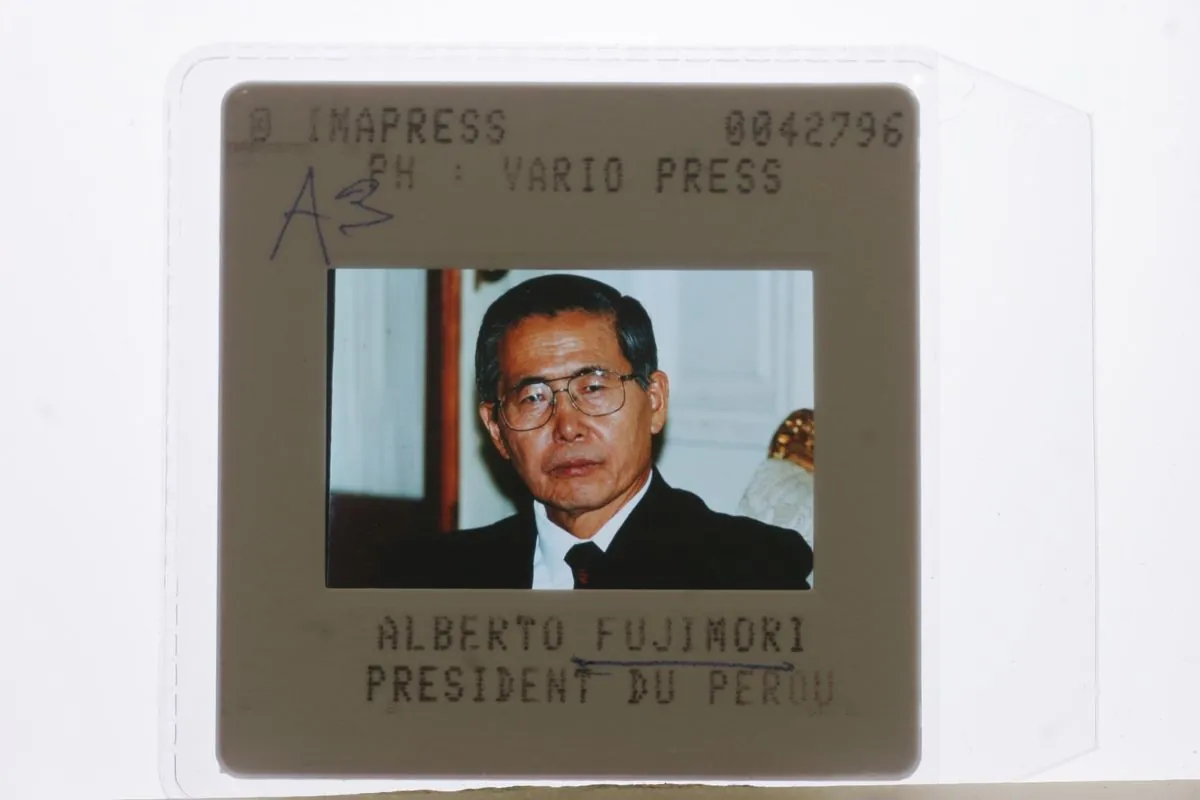Alberto Fujimori, Peru's former president who led the country through a period of economic growth and anti-terrorism efforts in the 1990s, has passed away at the age of 86 on September 11, 2024. His death marks the end of a controversial figure in Peruvian politics, whose legacy is both praised and criticized.
Born on July 28, 1938, in Lima, Peru, to Japanese immigrant parents, Fujimori rose to power in 1990 as a political outsider. His presidency, which lasted until 2000, was characterized by significant economic reforms and a successful campaign against terrorism.
Fujimori implemented neoliberal economic policies, dubbed "Fujishock," which included privatizing state-run companies and reducing trade tariffs. These measures helped combat hyperinflation and laid the groundwork for Peru's economic stability in subsequent years.
One of Fujimori's most notable achievements was the capture of Abimael Guzmán, the leader of the Maoist Shining Path guerrilla group, on September 12, 1992. This event dealt a significant blow to the insurgency that had threatened Peru's stability throughout the 1980s.
However, Fujimori's tenure was not without controversy. On April 5, 1992, he carried out a self-coup, known as "autogolpe," using military force to shut down Congress and rewrite the constitution. This action, along with the creation of the National Intelligence Service (SIN) in the same year, led to accusations of autocratic rule.
"The closure of Congress and the subsequent human rights abuses marked a dark chapter in Peru's democratic history."
Fujimori's government was also responsible for a forced sterilization program affecting over 200,000 people, primarily indigenous women, which has been widely condemned as a human rights violation.
The final years of Fujimori's presidency were marred by corruption scandals. In 2000, videos emerged showing his top adviser, Vladimiro Montesinos, bribing politicians and media executives. This led to Fujimori's flight to Japan in November 2000, where he unsuccessfully attempted to run for the Japanese Senate in 2007.
In a surprising turn of events, Fujimori returned to South America in 2005, possibly hoping for political redemption. Instead, he was arrested in Chile and extradited to Peru on September 22, 2007. On April 7, 2009, he was convicted of human rights violations, including his role in the Barrios Altos massacre of November 3, 1991, and sentenced to 25 years in prison.
Fujimori's legacy continues to divide Peruvian society. While some credit him with economic reforms and defeating terrorism, others remember the human rights abuses and corruption that characterized his rule. His daughter, Keiko Fujimori, has become a prominent political figure in Peru, carrying on the family's influence in national politics.
As Peru reflects on Fujimori's complex legacy, the country continues to grapple with the long-term effects of his policies and the ongoing debate about his impact on the nation's history.
